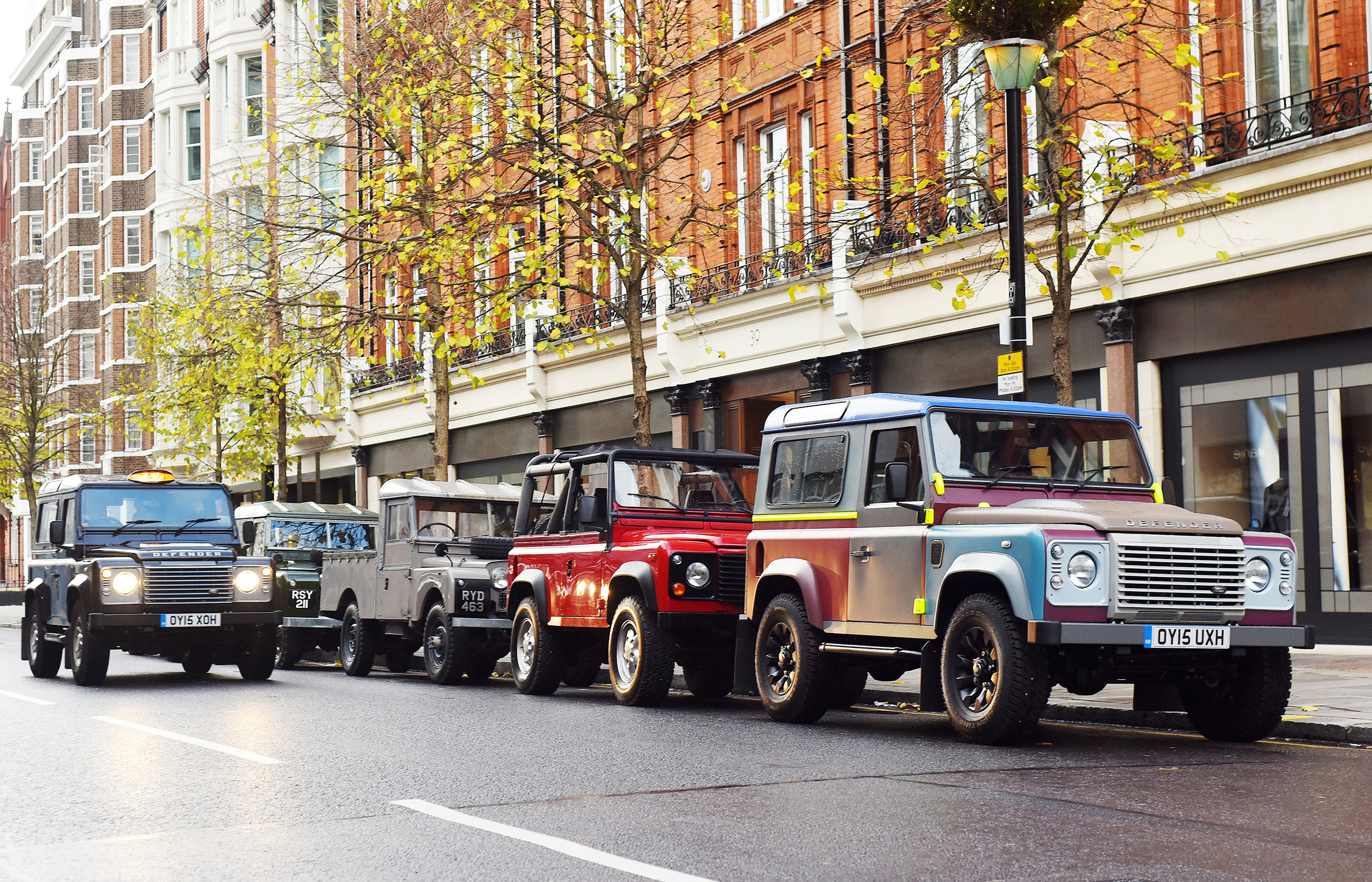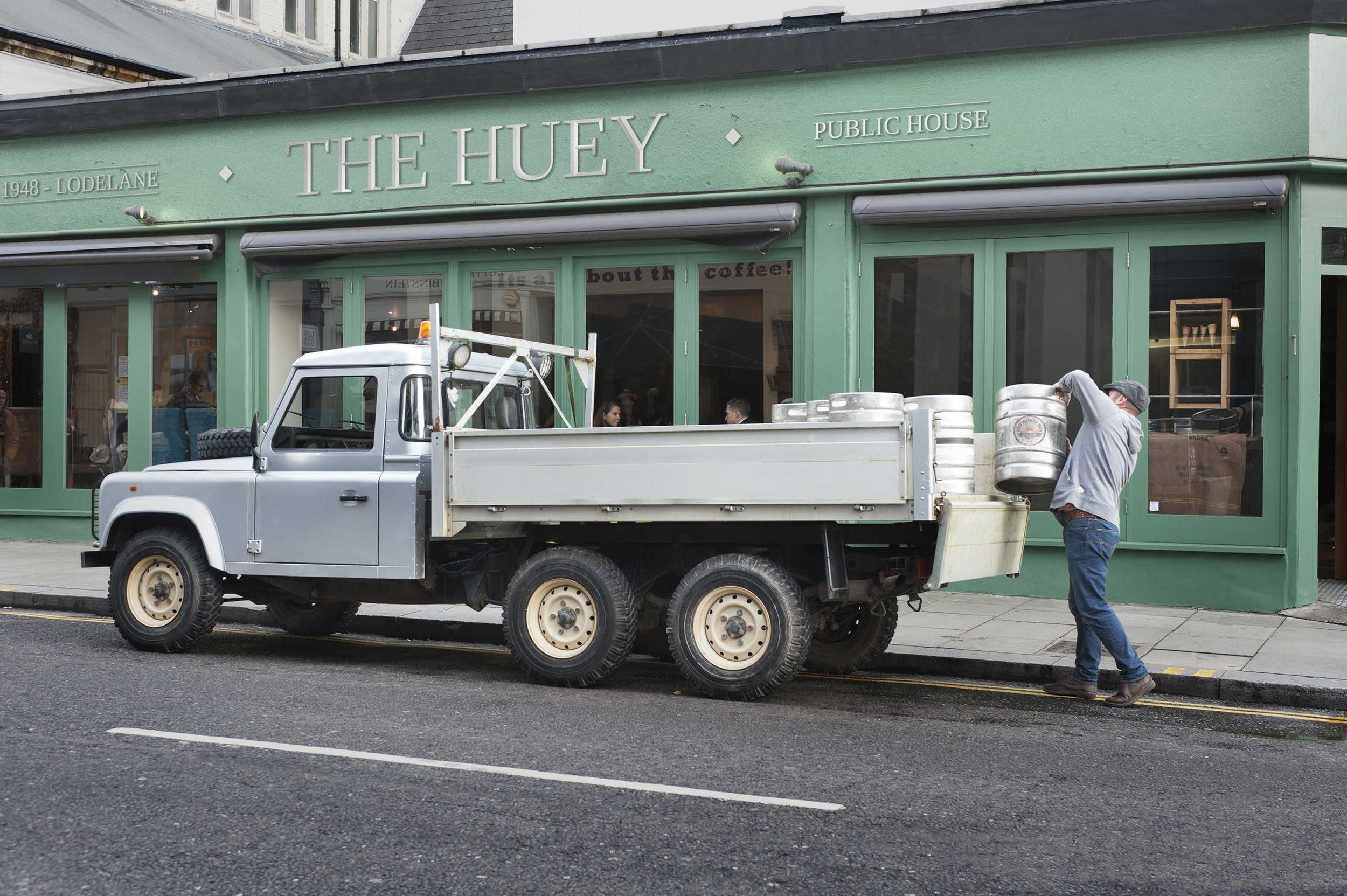LEVC (London EV Company) has confirmed that its all-new electric TX taxi is now fully certified to carry fare-paying passengers in London.
City Car, Consumer, Electric, Hybrid, News, People Carrier, Safety, Technology
City Car, Consumer, Electric, Hybrid, News, People Carrier, Safety, Technology
LEVC (London EV Company) has confirmed that its all-new electric TX taxi is now fully certified to carry fare-paying passengers in London.
The union for professional drivers, GMB, has won its case against Uber - which was deemed to have acted unlawfully by not providing drivers with basic workers’ rights.








The iconic 4x4 was starring in a film to commemorate 67 years of the Defender as it enters final phase of production, while also helping promote a forthcoming charity auction of the special 'Defender 2,000,000' model being held at Bonhams on 16 December. All proceeds from the auction of Defender 2,000,000 will be donated in their entirety to Land Rover's humanitarian and conservation partners - the International Federation of Red Cross and Red Crescent Societies (IFRC) and the Born Free Foundation.
The film also stars a number of other more unusual, specially modified vehicles including a Series II Land Rover ice cream van, a specially tailored Paul Smith Defender and the first ever Series Land Rover show car, displayed at the Amsterdam Motor Show in 1948.
The special Defender features many distinctive finishing touches. A map of Red Wharf Bay - where the design for the original Land Rover was first drawn in the sand - is engraved on the car, which contrasts with the exterior Indus Silver satin paint. A unique 'no 2,000,000' badge sits on the rear of the vehicle, which is mirrored on the interior console. The design is finished with Santorini Black wheels and wheel arches, roof, door hinges, grille and mirror caps.
Inside, the leather seats also feature the 'Red Wharf Bay' graphic and 'no 2,000,000' logos have been stitched on the headrests. A bespoke aluminium plaque, signed by everyone who helped to assemble the vehicle is fitted to the driver's seat plinth. On the front and rear, S90 HUE registration plates - a reference to the first ever pre-production Land Rover, registration 'HUE 166' - complete this one-of-a-kind Land Rover Defender.
Production of the original Land Rover Series I began at the Lode Lane facility in 1947 ahead of its launch at the Amsterdam Motor Show on 30 April 1948. Since then two million examples of the Series I, II III and Defender have been produced at Solihull.
Green Lite Taxi Kft., based in Budapest, has purchased 65 Nissan LEAFs in a bid to become Hungary's largest zero emission fleet.
Ors Levay, CEO of Green Lite Taxi Kft., which has installed seven quick chargers within the city to power the franchise, said: "We are delighted to be the first taxi company in Hungary to go 100 percent electric and the 199 km range means we only need to charge our taxis once during a shift. Along with the large savings on fuel and maintenance, the Nissan LEAF is very smooth to drive and almost silent, which means a more enjoyable journey for my customers and the drivers say typical 10 hour shifts are less tiresome."
Nissan delivered over 100 electric vehicles to taxi companies across Europe in 2015, making it the best-selling manufacturer of pure electric taxis.
In Estonia, a LEAF owned by taxi company, Elektritakso, is said to have clocked up over 218,000 kilometres (135,459 miles) on its original battery pack, showcasing its durability and reliability.
In total, there are 80 electric taxis in Estonia, whilst in Lithuania, Nissan is set to deliver its first eight electric taxis to the Smart Taxi Company, based in the country's capital, Vilnius, for late 2015.
Nissan electric vehicles - which include the LEAF and the e-NV200, a passenger and light commercial vehicle - are becoming increasingly popular among European taxi businesses, with the Netherlands and the UK topping Nissan's e-taxi league table.
The newly launched 30 kWh LEAF is expected to be popular with taxi firms as it will enable drivers to travel 25 percent further than the standard vehicle.
Gareth Dunsmore, Director of Electric Vehicles for Nissan Europe, said: "We are so proud to be announcing this all-important milestone. Nissan has already delivered 30 percent more e-taxis this year than in 2014 and this figure is constantly increasing, as more taxi companies realise the benefits of becoming 100 percent electric."